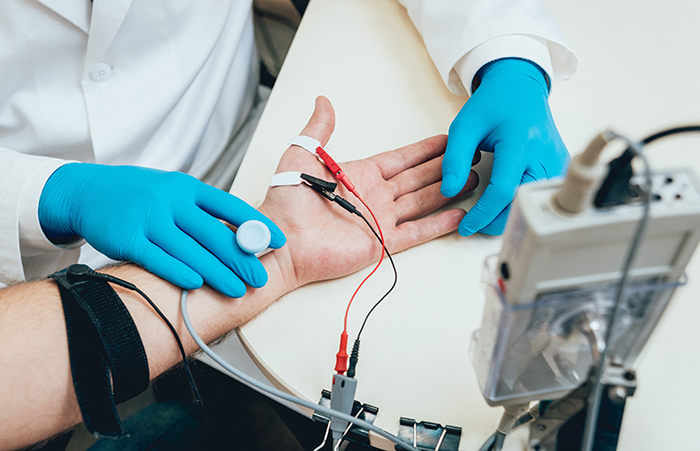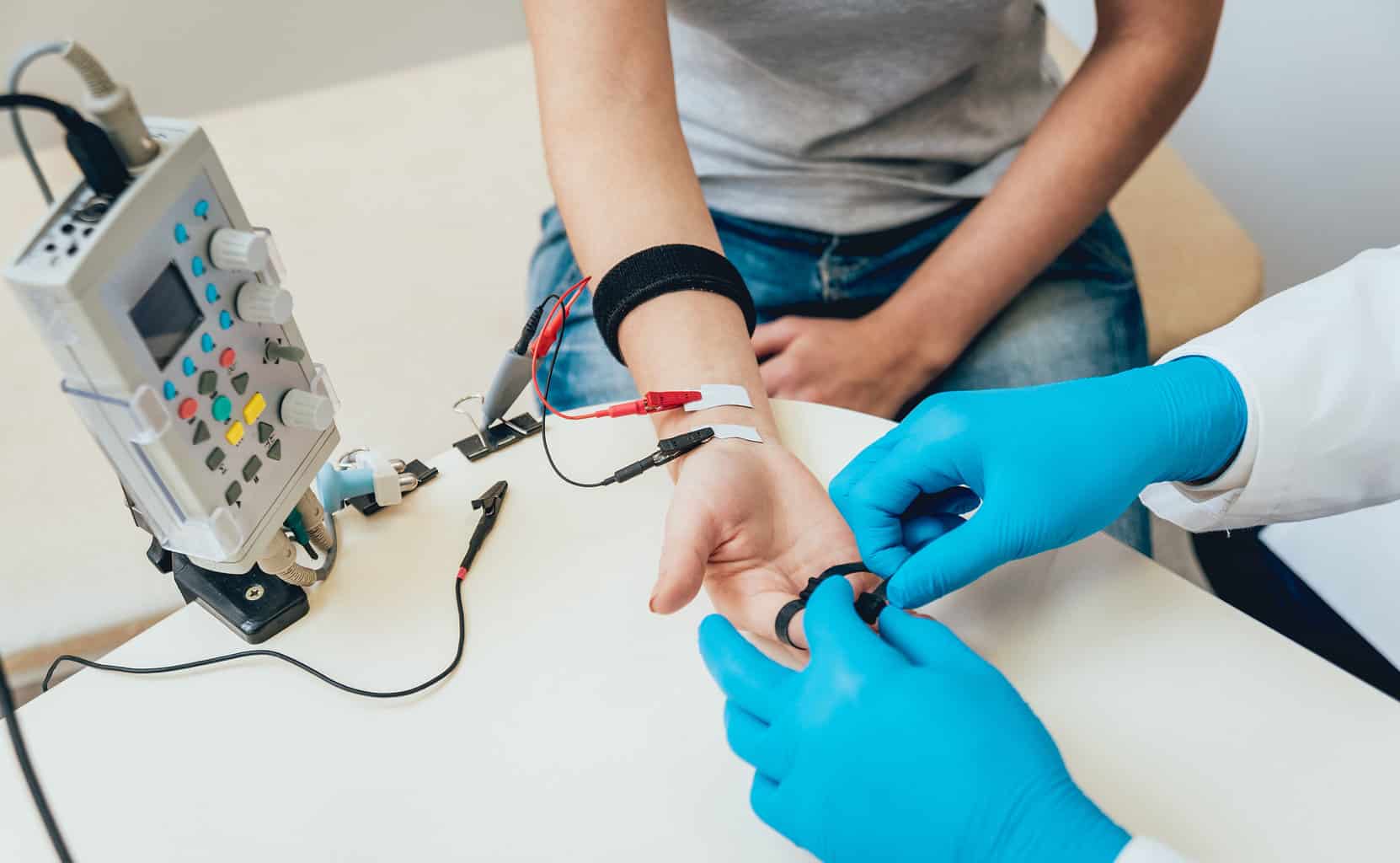NCV Lab
NCV stands for Nerve Conduction Velocity, and it is a diagnostic test used to evaluate the health of the peripheral nerves. During an NCV test, electrodes are placed on the skin over the nerves being tested, and a small electric shock is applied to stimulate the nerve. The time it takes for the electrical impulse to travel along the nerve is then measured, and the results are used to assess the nerve’s function.
NCV tests can help diagnose a variety of nerve-related conditions, such as carpal tunnel syndrome, peripheral neuropathy, and nerve injuries. They can also be used to monitor the progress of nerve damage and to evaluate the effectiveness of treatments.
NCV tests can help diagnose a variety of nerve-related conditions, such as carpal tunnel syndrome, peripheral neuropathy, and nerve injuries. They can also be used to monitor the progress of nerve damage and to evaluate the effectiveness of treatments.

EMG Lab
EMG stands for Electromyography, which is a diagnostic test used to evaluate the health of muscles and the nerves that control them. During an EMG test, a small needle electrode is inserted into the muscle being tested, and the electrical activity of the muscle is measured while it is at rest and during contraction.
EMG tests can help diagnose a variety of muscle and nerve-related conditions, such as muscular dystrophy, ALS (Amyotrophic Lateral Sclerosis), carpal tunnel syndrome, and pinched nerves. They can also be used to monitor the progress of muscle and nerve damage and to evaluate the effectiveness of treatments.
EMG tests can help diagnose a variety of muscle and nerve-related conditions, such as muscular dystrophy, ALS (Amyotrophic Lateral Sclerosis), carpal tunnel syndrome, and pinched nerves. They can also be used to monitor the progress of muscle and nerve damage and to evaluate the effectiveness of treatments.

Pet Scan (Neuro)
PET (Positron Emission Tomography) scan is a medical imaging technique that uses a small amount of radioactive material to produce images of the brain’s activity and metabolic processes. It is commonly used in neuroimaging to detect and monitor a variety of neurological conditions, including dementia, stroke, and brain tumors. PET scans can provide valuable information about brain function and metabolism, and can help guide treatment decisions for patients with neurological disorders.

Facilities
Support Services
Comprehensive stroke care unit: The team includes, neurologists, interventional neuroradiologists, diagnostic radiologists, critical care specialists and neurosurgeons who provide 24/7 care to patients. Neurosurgical Operating Theatre: Equipped with intra-op MR facility, Image Guided surgery/stereotaxis, Neuroendoscopy, Neurophysiological Monitoring and intra-operative Angiography. ICU: With latest brain monitoring techniques (including Quantitative EEG, Transcranial Doppler).Neuroimaging Facilities Included
3 TMRI 128slice CT that enables performance of CT & MR angiography & perfusion imaging, functional MRI & MR spectroscopy.OPEN HOURS
-
Artemin Hospital Sector 51, Gurugram, Haryana - 122001
- Mon - Sat 12pm to 5pm
-
Artemis life Hospital, New Friends Colony, New Delhi
- Wednesday - 4pm to 7pm
-
Medharbour Hospital, Sector 51, Gurgugram
- Mon - Thu 5pm to 7pm
For Appointment
-
Artemin Hospital Sector 51, Gurugram, Haryana - 122001
- 9910094615
-
Artemis life Hospital, New Friends Colony, New Delhi
- 01146583333/ 9818718658
-
Medharbour Hospital, Sector 51, Gurgugram
- 9971679666/ 9971631222/ 01242577222
- Copyright 2023 Dr. Sumit Singh. All Rights Reserved.
